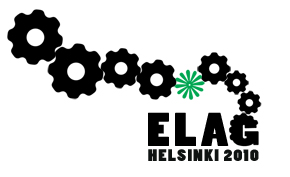Speaker
Marja Haapalainen
(National Library of Sweden)
Description
Which came first, the libraries’ need to enhance opportunities for integrated search or the commercial vendors launching product after product, meeting this need or maybe just creating this need? Today there are quite a few central indexes to choose from; Serials Solutions came up with Summon, followed by Exlibris Primo Central, there are OCLC and EBSCO with their respective products. The libraries’ need has of course its origin in the increasing amount of electronic resources they have to administer and provide to users in an easy way. The demand for a single search interface would be fulfilled by the collection of metadata and pre-processed indexes on top of this data. But the collection and aggregation of data from different sources/publishers is a challenge, both technically and legally.
The easy way is maybe to rely on the commercial vendors and buy an out-of-the-box solution. The vendors have already done the work of collecting the metadata, but then again, your library has already done the necessary work of license agreements with the information providers to get the right to access this data. Furthermore the access to the vendors’ metadata indexes seems to be solely provided through API:s that do not allow for the flexibility and control over the search service the library may want to provide.
The hard way is to do it yourself. If you store and index the data by yourself it will give you more control over the search services you develop and it would also mean giving libraries more control of how metadata is produced, used and re-used. One huge part of the work is the metadata aggregation workflow and normalization process, which is quite time consuming and resource intensive. Another part of the work is the negotiation with information providers. It becomes necessary to secure not only the rights to metadata but also the delivery of sufficient and relevant metadata.
Several questions arise. Is it meaningful to aggregate metadata? Whose responsibility is it really? Should the individual library or a consortium of libraries do this? Is it possible to cooperate across nations? What are the benefits?
Author
Marja Haapalainen
(National Library of Sweden)
